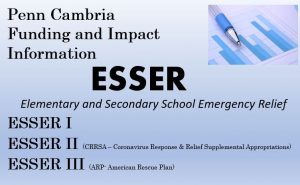Introducing Your School Psychologist: Mrs. Courtney Kuncelman
KuncelCA@pcam.org
(814)886-4785
What is a school psychologist?
School psychologists support parents and teachers in their efforts to help children succeed academically, socially, and emotionally. They have specialized training in the fields of child psychology, learning and education. They use their skills and training to collaborate with parents and school staff in an effort to improve the lives and learning of children and youth. Their goal is to create a safe, healthy, and supportive learning environment so that all students can learn.
School psychologists are certified by the Pennsylvania Department of Education and some earn national certification status by the National School Psychology Certification Board. They must complete a minimum of a Specialist level degree program that includes an extensive year long internship. Some earn doctorate degrees and some hold a professional psychologist license. School psychologists use a variety of approaches to address individual student needs, but generally provide these core services:
Assessment
School psychologists administer psychological and educational tests to students who are experiencing learning, social, emotional, or behavioral difficulty. Testing is often conducted as part of a multidisciplinary evaluation to determine whether the student has a learning, emotional, or physical disability that requires special education services. School psychologists also conduct evaluations of students to determine whether they are mentally gifted and in need of accelerated or advanced educational programs.
Consultation
School psychologists provide advice and recommendations to parents, teachers, and other school personnel regarding children’s learning or behavior problems. They may consult with teachers on classroom interventions or provide training in behavior management, social skills, or effective teaching practices. They are able to work with parents to address behavior problems that potentially interfere with learning and social functioning.
Prevention and Intervention
School psychologists collaborate with teachers, parents, and administrators to find effective solutions to learning and behavior problems. They help others understand child development and mental health and how they affect learning and behavior. School psychologists often function as members of student support teams to develop interventions and programs for students who are experiencing learning or behavior problems. They assist in screening for learning and mental health problems so that interventions can be implemented and students can reach their learning potential.
Student and Parent Counseling
Some school psychologists provide counseling to students to teach them social skills or coping strategies. They may work with families to help them gain a better understanding of their child’s learning and emotional needs.
Research and Planning
School psychologists are often involved with assisting schools in the development and implementation of research-based educational programs. They may also be involved in the compilation and analysis of data to determine whether educational programs are effective in meeting the needs of the student population.


